If you or someone in your circle is grappling with this incapacitating condition, you’re likely familiar with the relentless quest to alleviate arthritis pain. Distinctive symptoms include pain, swelling, and inflammation in the joints. While arthritis commonly manifests in weight-bearing joints, it can impact virtually any part of the body, significantly diminishing one’s quality of life. Although arthritis can afflict individuals of any age, including children, it is predominantly viewed as a condition affecting the elderly, becoming more widespread with advancing years.
What exactly is arthritis?
Arthritis is a broad term that groups together more than 100 inflammatory joint disorders characterized by pain, swelling, stiffness, and decreased joint mobility. The most common types of arthritis are osteoarthritis and rheumatoid arthritis and gout.
What causes arthritis?
The many forms of arthritis, each with their own specific causes and symptoms, can be influenced by a combination of factors, including environment and lifestyle factors, genetic predisposition, joint injuries, infections, and/or hormonal changes.
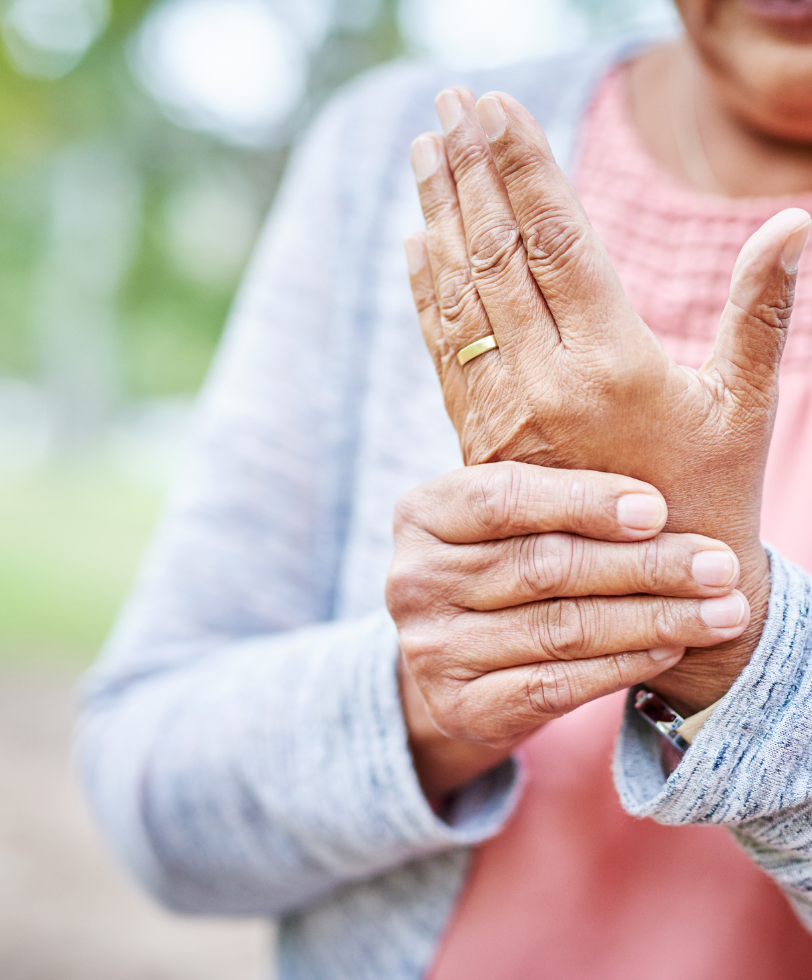
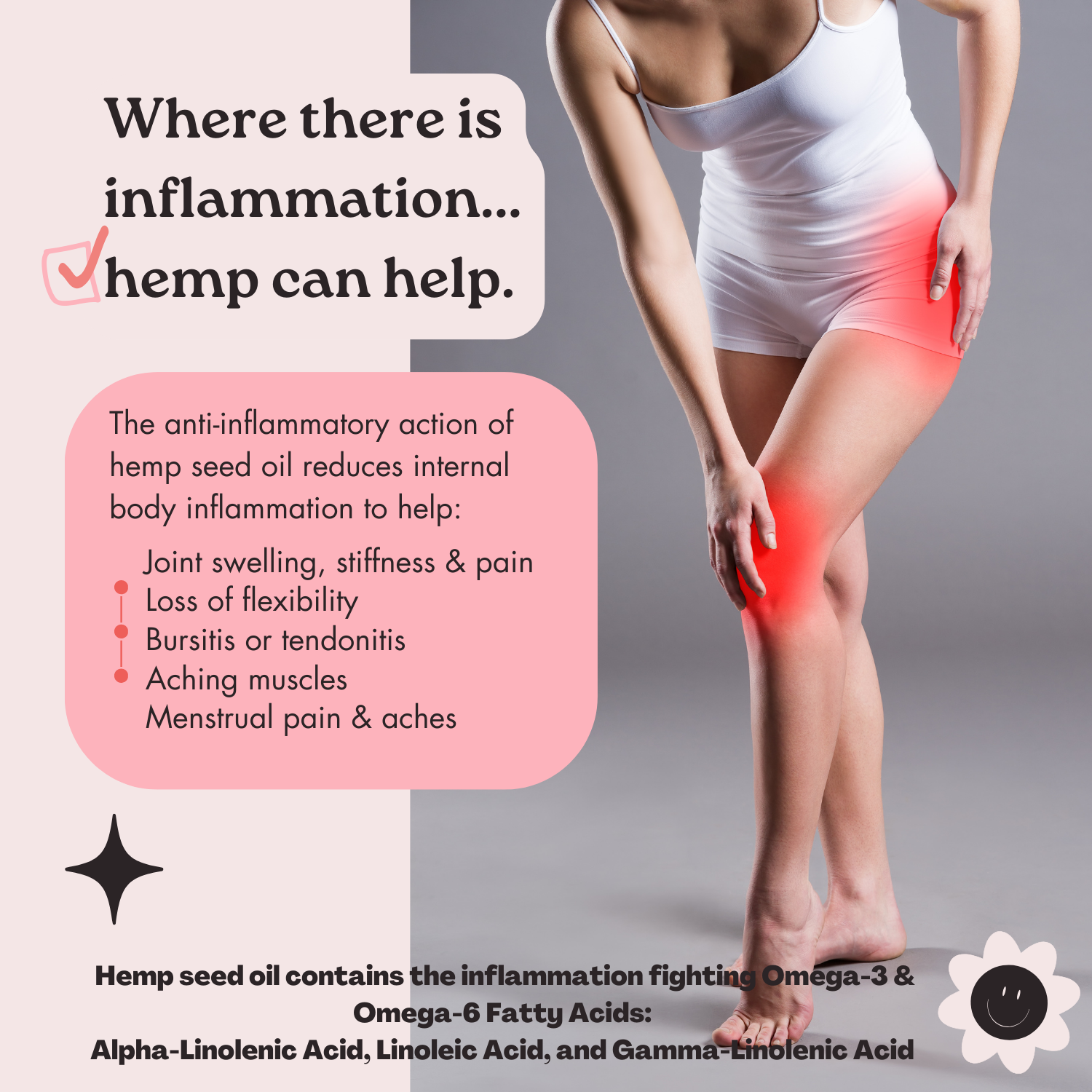
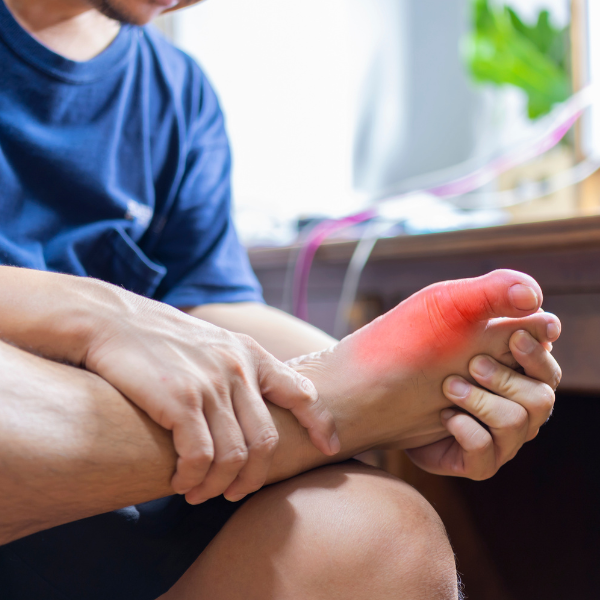
While the specific causes vary, inflammation is a common factor in many forms of arthritis. Chronic inflammation can lead to joint damage and the typical symptoms associated with arthritis, such as pain, swelling, and stiffness. Appropriate management is key to addressing arthritis and minimising its impact on joint health.
This is where Hemp Seed can help:
- reduce joint swelling, stiffness & pain
- improve flexibility
- decrease the inflammation that causes bursitis
- reduce muscle aches
- fight age-related aches & pains
Add:
- Hemp seeds to baked breads or fresh salads
- Hemp seed protein to smoothies
- Hemp seed oil to salads, warm dishes, or smoothies.
- Take the oil by spoonful or the seeds by handful!
review by FRANK H.
“Love it! I’m getting older and I think Hemp Seed Oil really helps with my joints and movement.”
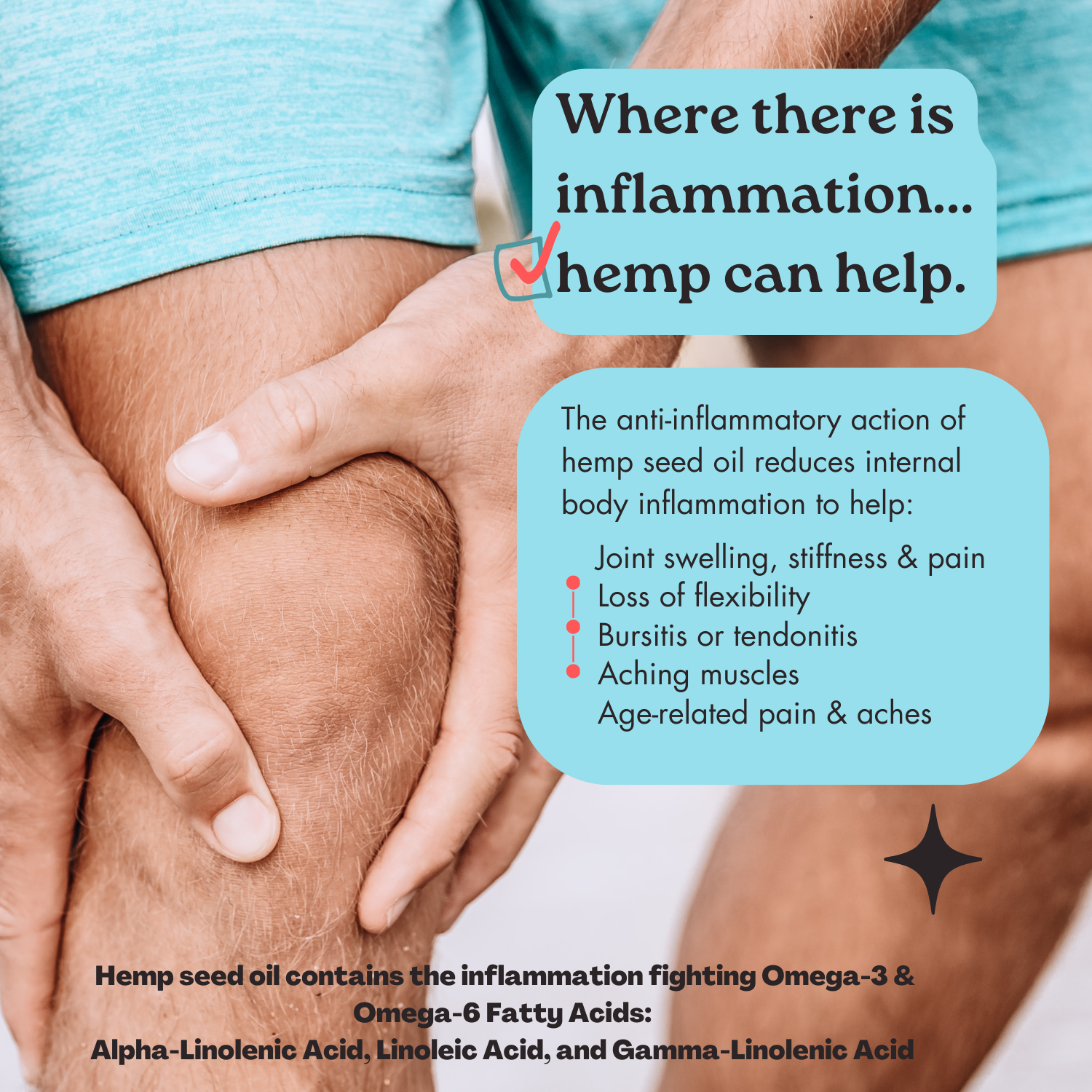

This is where things get interesting…
The different underlying causes of arthritis:
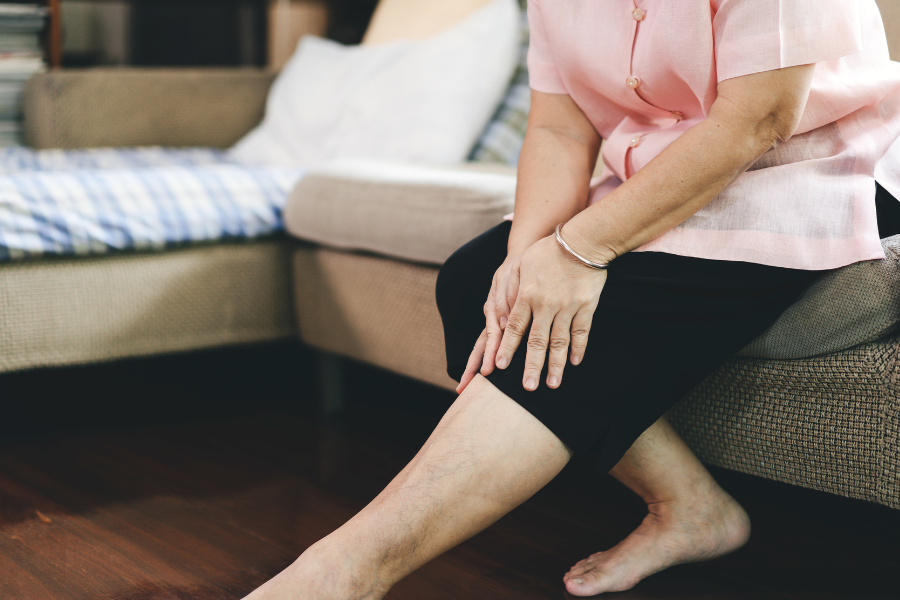

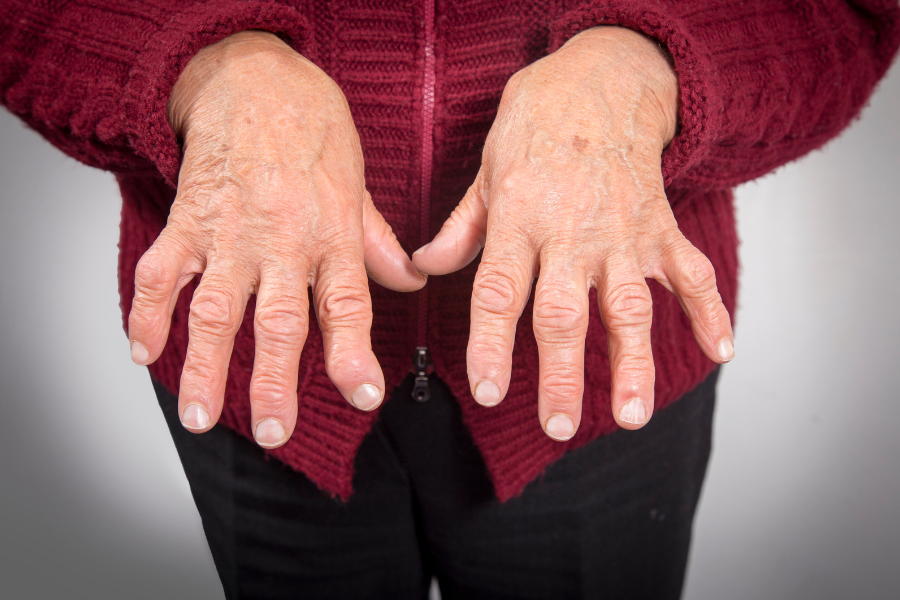
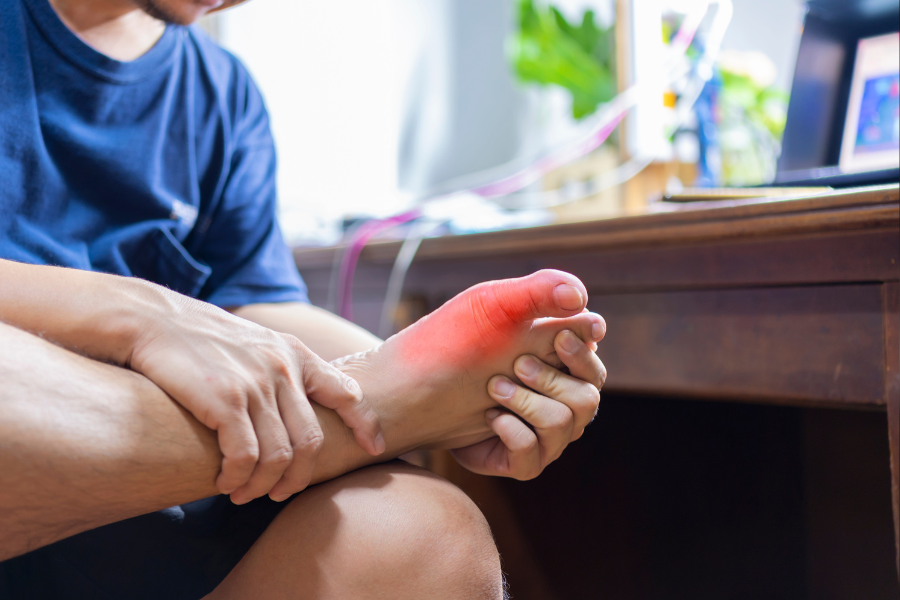

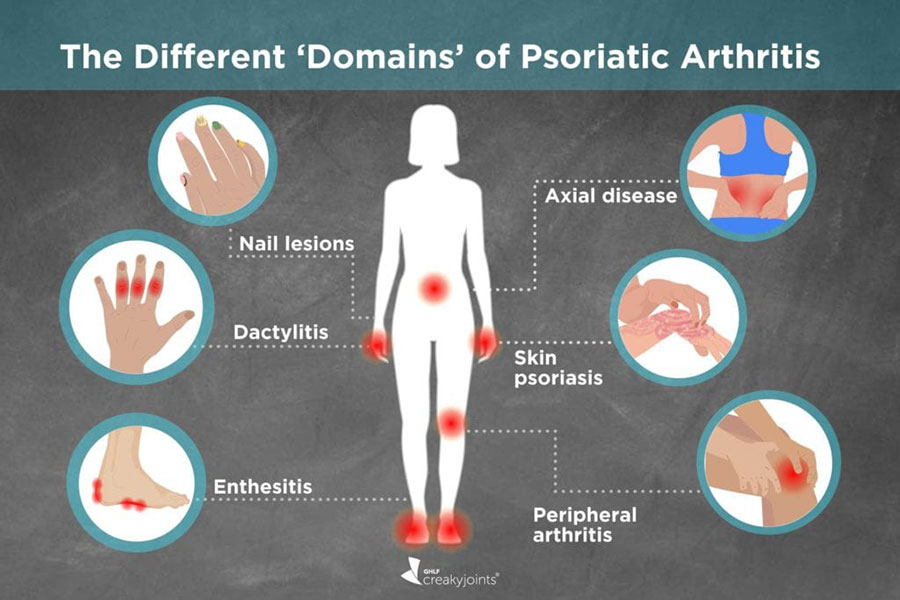
osteoarthritis (OA)
-
- Age: OA is commonly associated with aging, as wear and tear on joints over time can lead to cartilage breakdown and mostly affects weight-bearing joints like the knees, hips and spine. When this protective cartilage layer that cushions the bone ends wears down it leads to pain, inflammation and swelling and reduced joint flexibility.
- Joint Injury: Previous joint injuries or trauma can contribute to the development of OA.
- Obesity: Excess body weight can increase the stress on weight-bearing joints, such as the knees and hips, leading to OA.
RHEUMATOID ARTHRITIS (RA)
-
- Autoimmune Response: RA is an autoimmune disorder where the immune system mistakenly attacks the synovium, the lining of the membranes that surround joints. This results in inflammation, which can eventually lead to joint damage and deformities. RA commonly affects the small joints of the hands and feet.
- Genetics: There is a genetic component to RA, and individuals with a family history of the condition may be at higher risk.
Juvenile Idiopathic Arthritis (JIA)
-
- Autoimmune Factors: Similar to RA, JIA involves autoimmune responses, and encompasses several types of arthritis that affect children. The cause and specific triggers of JIA is not well understood, but it involves chronic joint inflammation. Genetic and environmental factors may play a role.
GOUT
-
- Uric Acid Buildup: Gout is caused by the buildup of uric acid crystals in the joints, often due to the body’s inability to properly eliminate uric acid. This accumulation can lead to sudden and severe attacks of pain, swelling, and redness, often affecting the big toe.
Ankylosing Spondylitis
-
- Genetics: There is a strong genetic component to ankylosing spondylitis, and a specific genetic marker (HLA-B27) is often present in affected individuals. This is a type of arthritis that primarily affects the spine, causing inflammation between the vertebrae and joints. Over time, it can lead to the fusion of the spine, resulting in reduced mobility.
Psoriatic Arthritis
-
- Psoriasis: Psoriatic arthritis often occurs in individuals with the skin condition psoriasis. The immune system’s response to psoriasis triggers inflammation in the joints causing pain, swelling, and stiffness.
Image credit: Creaky Joints
All presentations of arthritis have “inflammation” in common. So to reduce the symptoms and pain we need to reduce the inflammation. As above, the symptoms of arthritis can vary widely and include the common features of joint pain, swelling, stiffness, and a decrease in range of motion. Treatment options depend on the type of arthritis and may include medications, physical therapy, lifestyle changes, and in some cases, surgery. Where there is inflammation, anti-inflammatory hemp seed oil, seeds, or protein can be added to your daily diet to help decrease the inflammation. This is due to the anti-inflammatory effects of the balanced Omega-3 and Omega-6 contained within hemp seeds.
Hemp seed oil helps combat arthritis inflammation through:
- Modulating immune response via omega-3 and GLA
- Supporting anti-inflammatory prostaglandin pathways
- Indirect support of the endocannabinoid system
- Reducing oxidative stress
